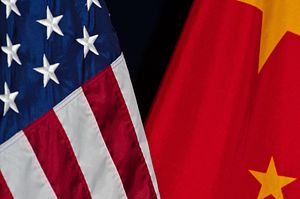The United States Senate held a hearing on November 19 focused on “Securing the U.S. Research Enterprise from China’s Talent Recruitment Plans.” Written and verbal testimony detailed the transfer and theft of American taxpayer-funded research, intellectual property, and technology through China’s state-sponsored Talent Recruitment Plans.
Chaired by the Homeland Security and Governmental Affairs Permanent Subcommittee on Investigations, witnesses included key representatives from the FBI, the National Science Foundation (NSF), the National Institutes of Health (NIH), the Department of Energy, and the Consular Division of the State Department.
In his opening statement, Senator Thomas R. Carper, co-chairman of the committee, summed up his view of China’s largely successful attempts to compromise U.S.-funded cutting-edge research.
“China,” Carper said, “is attempting to eat our seed corn.”
Chinese talent recruitment plans pay selected recruits large sums to bring their expertise to China. A signing bonus can be as much as RMB 1,000,000 (over $142,000).
According to testimony, recruits, including professors and post-doctoral students at American universities, are signed up to contracts that are legally binding in China.
Witnesses testified that under the contracts, “shadow labs” are established in China. A recruit, for example an American university professor with a U.S. taxpayer-funded National Science Foundation grant, then duplicates in China the research he or she is doing in the United States.
As one witness stated, “This way they get priority. They are able to know what’s happening in American laboratories before the rest of the world does.”
Those contracts also ensure that the recruited scientist relinquishes to the Chinese state all intellectual property that develops from the research done under the contract’s terms.
In effect, therefore, China gets early-stage research and results from U.S.-funded projects.
Multiplying the damage done to American research institutions, China then uses its ill-gotten intellectual property to apply for patents, not only in China, but in the United States and elsewhere, as well.
The table of contents alone of the 100-plus page staff report prepared for the hearing underscores the conclusions.
“The National Science Foundation is unprepared to stop foreign talent recruitment plan members from misappropriating U.S.-funded research,” reads one title. “Ongoing criminal prosecution highlights problems with [the Department of] State’s lack of scrutiny of research scholar visas,” reads another.
And perhaps most the most alarming of all: “The FBI was slow to recognize the threat” and “The FBI continues to lack a coordinated national outreach program on the threat from Talent Recruitment Plans.”
Investigations into and criminal charges against academics participating in China’s talent recruitment programs have drawn criticism from some quarters in the United States, particularly universities, some of which claim that Chinese students and professors are being unfairly profiled and spied upon.
But John Brown of the FBI denies this.
“Any ethnicity can be recruited so ethnicity plays no role” in FBI investigations. China targets “anyone deemed to have the information and access that China is looking for,” Brown said.
The Chinese government has not been coy about stating its goals. “Our aim is to gather the global wisdom and create the China great exploit [sic],” says the English version of the 1000 Talents Plan website
One hearing witness stated, “What’s particularly striking is that many American institutions have no idea that their own faculty have a laboratory in China,” much less that their faculty are spending a substantial amount of time in that Chinese lab.
Attempting to stop this theft through visa denial has also proved ineffective. Speaking for the State Department, Edward J. Ramotowski said that the “authority of consular officials to deny visas on the basis of suspect technology transfers is quite limited to items that are on the export control list maintained by the Department of Commerce.”
“We can’t link to China talent programs,” he added.
Contracts signed by successfully recruited targets also “violate U.S. research values, and incentivize unethical and possibly illegal behavior,” according to the FBI.
As Committee Chairman Senator Rob Portman stated, the contracts include a “commitment” that the contractor “shall not interfere with China’s internal affairs.”
This, the FBI’s Brown confirmed, is to ensure that the contractor will “adhere to Communist Party doctrine.”
Meaning, Portman, added, that “this is often used as leverage to make sure they follow through?”
“Yes,” Brown replied.
Perhaps the most compelling testimony was given by Dr. Rebecca Keiser of the National Science Foundation, during the question and answer period.
“The nature of the threat is so different today,” she explained. “Before, it was dual use, it was proliferation. It was things that we were used to dealing with in the classification system and export control system.”
She continued, “The difference is so strong now, about threats to research integrity, to our openness, to our transparency, that are creating economic benefits in China… These threats in the area of research integrity are jeopardizing our whole system… This is a system that has made America incredibly successful. We want to make sure it’s open, but others are taking advantage of it.”
As the United States and China supposedly head closer to a phase one trade agreement, it seems that it would be useful, indeed essential, that American negotiators include in their demands of the Chinese side a cessation of the activities detailed in last week’s Senate hearing on China’s Talent Recruitment Plans. The tariffs put on Chinese goods by U.S. President Donald Trump have, after all, clearly been designed to do more in readjusting the U.S.-China relationship than just balancing the trade of goods.
































